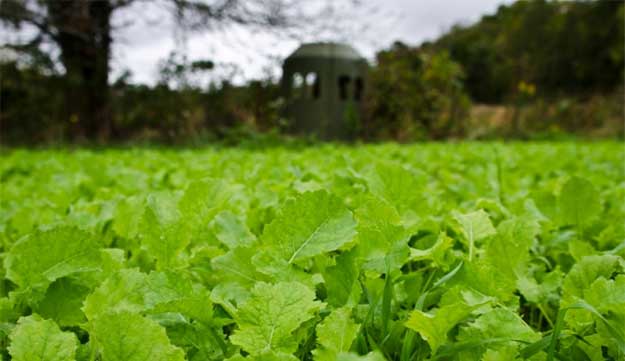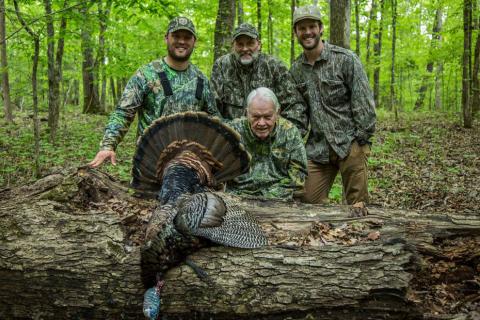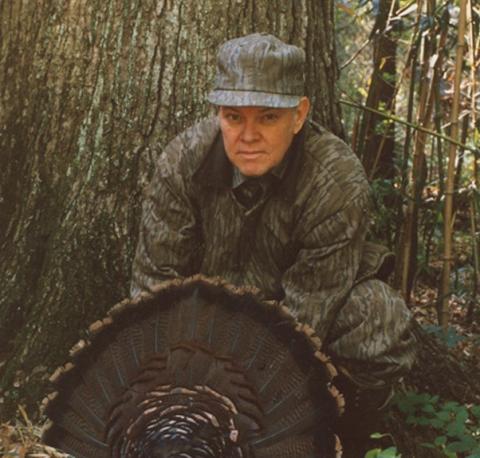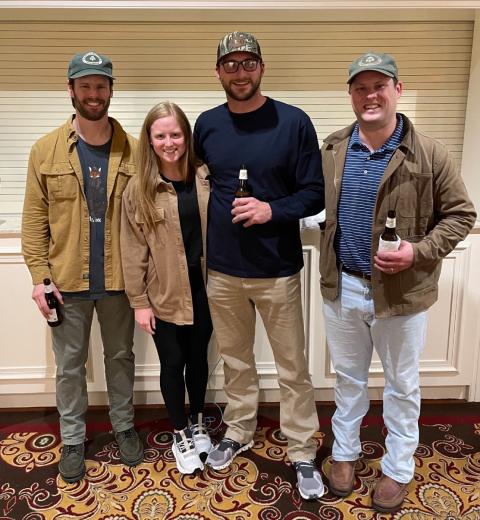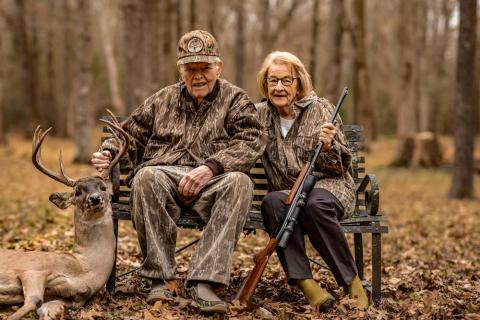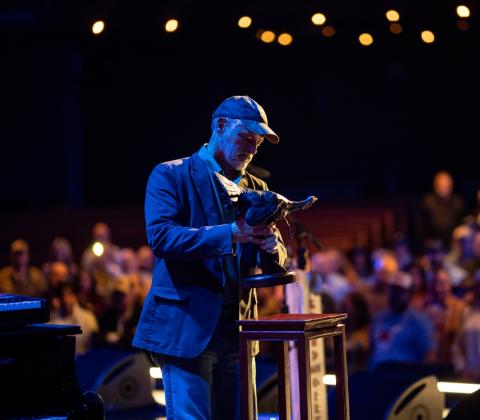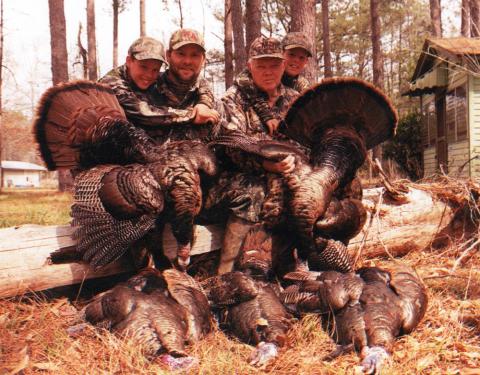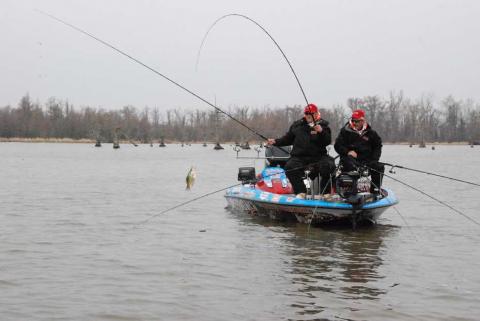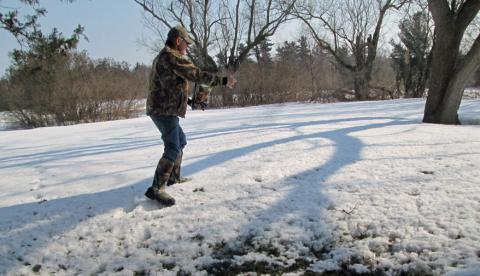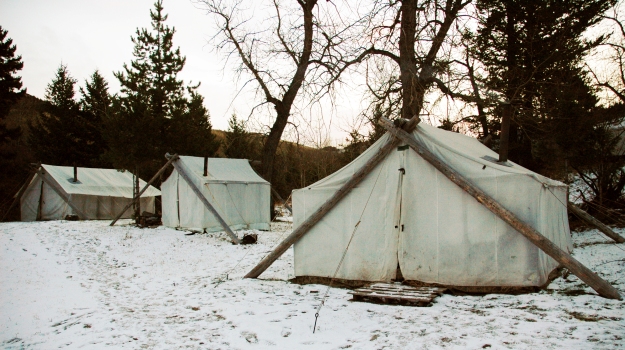
If you don’t know when to continue or to discontinue the hunt and look for shelter, you can get in serious trouble. If you're hunting elk in the late season, you need to be prepared to hunt under some really tough conditions. If you’ve got the potential for rain or snow to hit while you're out hunting, you need to be prepared to either hunt in that weather or survive in that weather.
Hunting and survival starts with your footwear. Next, you need a quality base layer and insulation layer. I like to wear Merino wool. You also want to wear outerwear that will block the wind and protect you from moisture. If you have the proper clothing and equipment, you’ll be the better prepared when bad weather hits. You want to be able to stay on the mountain until a major storm comes through. If the weather gets really severe or starts getting severe, you need to start looking for shelter that can protect you from the weather until the storm passes. I want my hunters to be able to hunt right up until the skies unload on them.
Remember that the wind will be a much greater factor in a bowhunter’s success in the late season than a gun hunter, because the kind of winds that we get in the Rocky Mountains can move your arrow off the target, even if you're shooting an extremely fast bow. I like to hunt right up until the weather gets really severe, because I know the places where I hunt. I've hunted these mountains so long that I pretty much know where I can find shelter, and I know the way back to camp.
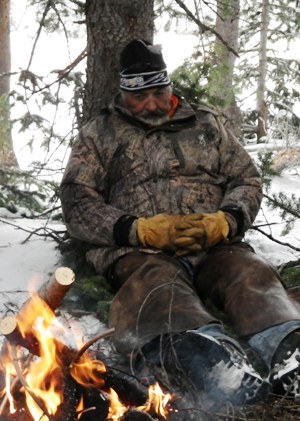 One of the worst things that can happen in the late season is to get caught in a whiteout - when the snow is falling so heavy that you feel like you’ve got a white sheet over your head, and you hardly can see in any direction. In a whiteout, even though I may know the way back to camp, I look for a place where I can be protected from the wind and the snow. When a whiteout hits, I'm much more concerned about my personal safety than I am about getting back to camp. If I'm riding a horse, I’ll tie my horse up, cut some limbs and start building a fire in or near my shelter. I’ll also cut some limbs from an evergreen to sit on or to lay on to keep me off the ground, and I’ll get close to that fire to stay warm.
One of the worst things that can happen in the late season is to get caught in a whiteout - when the snow is falling so heavy that you feel like you’ve got a white sheet over your head, and you hardly can see in any direction. In a whiteout, even though I may know the way back to camp, I look for a place where I can be protected from the wind and the snow. When a whiteout hits, I'm much more concerned about my personal safety than I am about getting back to camp. If I'm riding a horse, I’ll tie my horse up, cut some limbs and start building a fire in or near my shelter. I’ll also cut some limbs from an evergreen to sit on or to lay on to keep me off the ground, and I’ll get close to that fire to stay warm.
If I think I'm close enough to camp that I can return there, I’ll check my compass and head out for camp. I don’t like spending the night in the woods, especially if the weather forecast that day has been for an extended snow front to stay in our area. With all the electronics available today, keeping up with the weather is fairly easy. Today you can pull up a weather app on your cell phone and/or another type of weather-forecasting device. Your GPS apps will let you know how severe the weather will be, and whether you need to stay or return to camp. If the weather forecast is for a major winter storm to hit your area, you don’t want to hunt very far from camp that day. At camp, you have food, shelter and lights, if you need them. Having hunted in the mountains for more than 20 years, I've got a good sense of whether to stay in camp or whether to go and hunt.
A couple of years ago I was hunting in Wyoming in mid-October. We were hunting with horses, which allowed us to get in and out of the back country pretty quickly. When we got up one morning, there was a break in the storm, which usually is a good time to chase elk, especially if the region has had storms all night. We decided to saddle-up and get into the back country before daylight where we could spot-and-stalk a herd of elk. I began to watch the skies, because I know that sometimes after a major storm there will be a follow-up storm. By midday, the snow was coming down hard, and a fog drifted in to where we were. We moved into a bunch of trees, tied up our horses and built a big fire. With the fog, low clouds and snow, I knew that seeing how to return to camp would be difficult. After determining the storm was not going to lift until well after dark, I made the decision to let the horses try to find and take the best route back to camp. We mounted up and gave the horses their heads, and they got us back to camp a little after dark. I’ve mentioned this story, because in late-season hunting, the weather has a greater impact on whether or not you find and take elk than any other factor. The weather is huge when you're talking about success with late-season elk hunting.
















